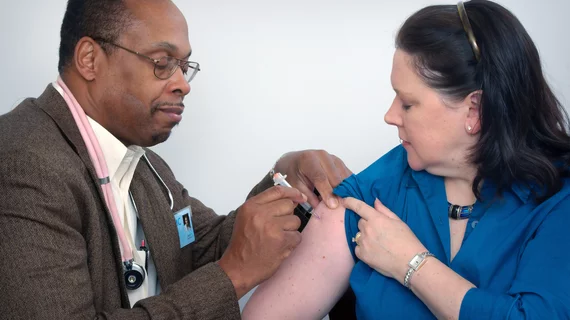Demand is sure to outstrip supply when a safe and effective COVID vaccine initially enters mass production. First in line to receive the inoculation should be the 5% slice of the population doing essential work to help fight the pandemic.
Simultaneously served straightaway would be the roughly 10% of individuals who have existing health problems serious enough to raise their risk of dying if they were to contract COVID.
The recommendations come from the National Academies of Sciences, Engineering and Medicine in a study report titled “Framework for Equitable Allocation of COVID-19 Vaccine.”
The private, nonprofit institutions were commissioned to conduct the research by the NIH and the CDC. They released their report Oct. 2, suggesting adoption of its prioritization blueprint by not only federal health agencies but also state, tribal, local and territorial authorities.
The second wave of vaccinations would include adults working in children’s education, food services and public transportation, along with people living in close proximity to one another inside nursing homes, group homes, homeless shelters and sites of incarceration.
Older adults in good general health would qualify for the second phase as well. People 65 and older comprise close to 80% of COVID fatalities, the authors point out.
Up third in the National Academies’ framework for COVID vaccine allocation would be young people plus, for example, adults who are at moderate risk of exposure and working in fields vital to keeping our society functioning. The researchers figure this swath to comprise 40% to 45% of the population.
Bringing up the rear in a fourth and final phase would be “everyone residing in the U.S. who did not have access to the vaccine in prior phases,” the National Academies state in an announcement.
The announcement quotes Helene Gayle, president of the Chicago Community Trust and a co-author of the report.
“Inequities in health have always existed, but at this moment there is an awakening to the power of racism, poverty and bias in amplifying the health and economic pain and hardship imposed by this pandemic,” Gayle says. “We saw our work as one way to address these wrongs and do our part to work toward a new commitment to promoting health equity.”
The National Academies are charging $70 for the report and accepting pre-orders online. For more on obtaining the report, click here.

